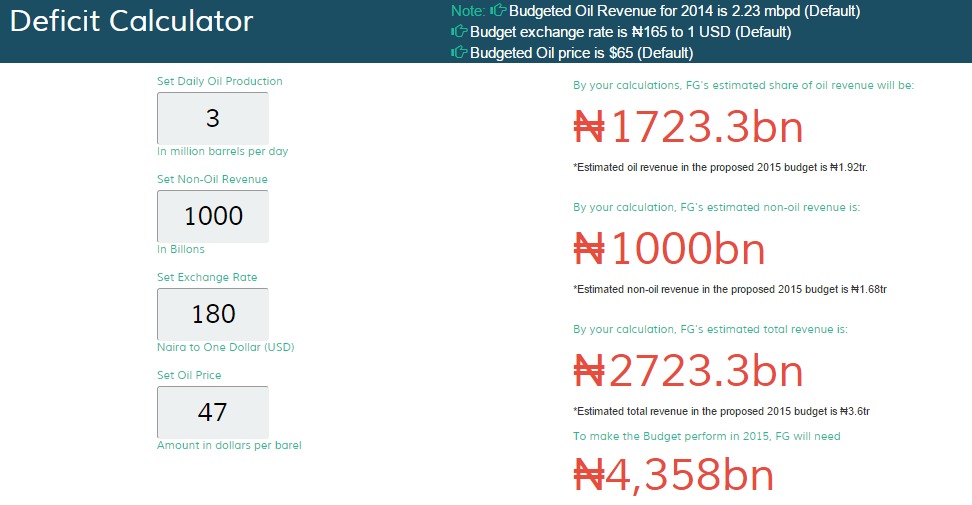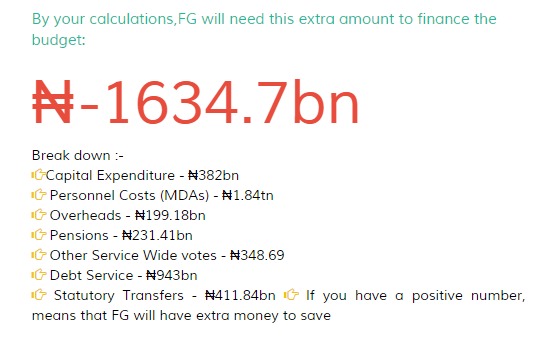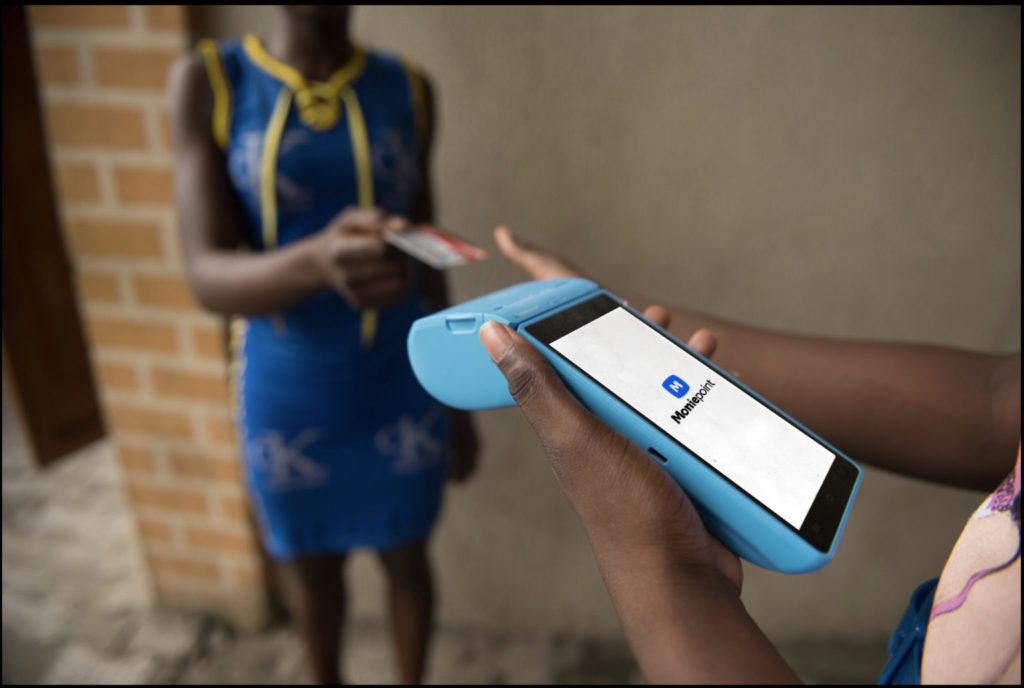With oil prices at their lowest in six years, unsustainable subsidies, and dwindling foreign reserves, I sure wouldn’t want to be Nigeria’s finance boss. But what would you do right now, if you were Nigeria’s finance minister for one day? Or as many days as you want? What if I told you there was an app for that?
Budgit’s Deficit Calculator allows you to try your hands at the least envied job in Nigeria right now, without the accompanying perennial headache. The web app, invites the user to set the parameters that define Nigeria’s revenue. One of the tasks is attempting to diversify the economy, which is almost totally powered by oil exports.
“Nigeria’s non-oil revenue averages ₦1 trillion annually; you would have to find creative ways to increase it”, the website says.
Budgit’s Deficit Calculator is coming in the run up to the Nigerian 2015 general elections. Understandably, this is a time when enlightened economic conversation are most heightened. It won’t be the first time Budgit will be taking advantage of such a surge of public interest in public finances. In 2011, the startup created its first web app called Budget Kut, which was essentially an interactive simulation of the Nigerian budget which allowed the users modify spending as they saw fit and cut government waste.
The goal of the deficit calculator on the other hand is to arrive at the amount of money that the federal government will need to finance the budget. You muck around with four parameters – daily oil production in barrels, amount of non-oil revenue, the exchange rate, and the international price of oil per barrel. A negative result means a budget deficit. A positive result means a budget surplus.
Since you get to diverge from the reality of these metrics, the results are of course hypothetical. But they are at least an interactive way for interested persons to engage with the subject, even if not the most accessible — I’m not sure the average Nigerian can be bothered.
Created in 2010 at a hackathon, Budgit is an award-winning startup that began life with a mission to retell the Nigerian budget in simple and interesting ways. Asides multiple grants from impact investors over the course of its life, Budgit has raised $500,000 in 2014 to continue its work on evidence based research, open data, and data journalism.

















